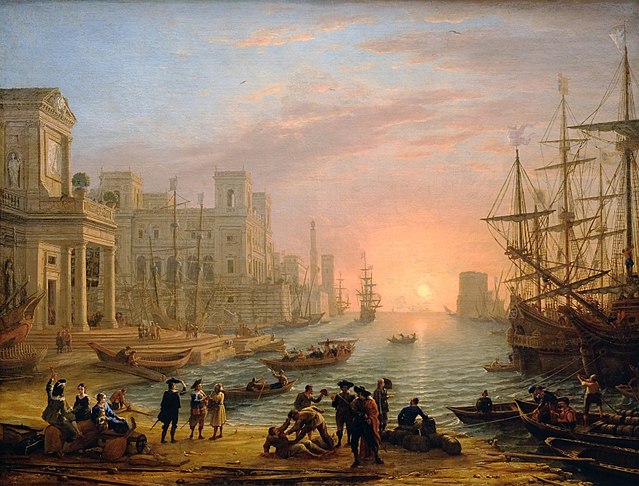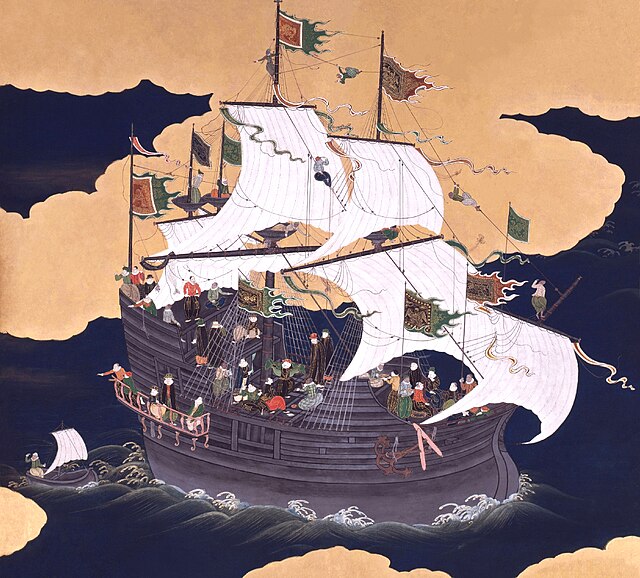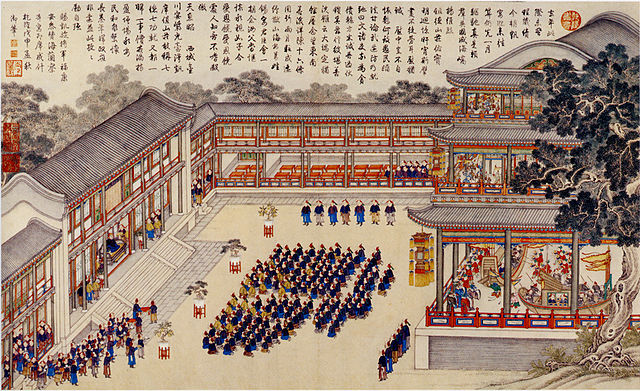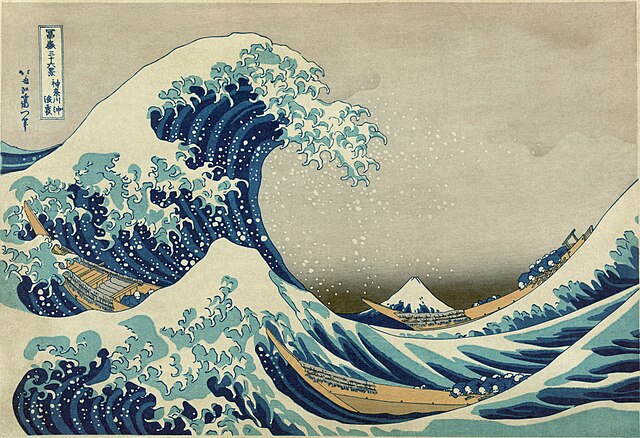Mercantilism is a nationalist economic policy that is designed to maximize the exports and minimize the imports for an economy. In other words, it seeks to maximize the accumulation of resources within the country and use those resources for one-sided trade.
Seaport at sunset, a painting by Claude Lorrain, completed in 1639 at the height of mercantilism
Merchants in Venice
French finance minister and mercantilist Jean-Baptiste Colbert served for over 20 years.
The Anglo-Dutch Wars were fought between the English and the Dutch for control over the seas and trade routes.
The early modern period is a historical period that is part of the modern period based primarily on the history of Europe and the broader concept of modernity. There is no exact date that marks the beginning or end of the period and its timeline may vary depending on the area of history being studied. In general, the early modern period is considered to have lasted from the 16th to the 19th centuries. In a European context, it is defined as the period following the Middle Ages and preceding the advent of modernity, sometimes defined as the "late modern period". In the context of global history, the early modern period is often used even in contexts where there is no equivalent "medieval" period.
A Japanese depiction of a Portuguese trading carrack. Advances in shipbuilding technology during the Late Middle Ages would pave the way for the global European presence characteristic of the early modern period.
Cishou Temple Pagoda, built in 1576: the Chinese believed that building pagodas on certain sites according to geomantic principles brought about auspicious events; merchant-funding for such projects was needed by the late Ming period.
Painting depicting the Qing Chinese celebrating a victory over the Kingdom of Tungning in Taiwan. This work was a collaboration between Chinese and European painters.
The Great Wave off Kanagawa, c. 1830 by Hokusai, an example of art flourishing in the Edo Period








